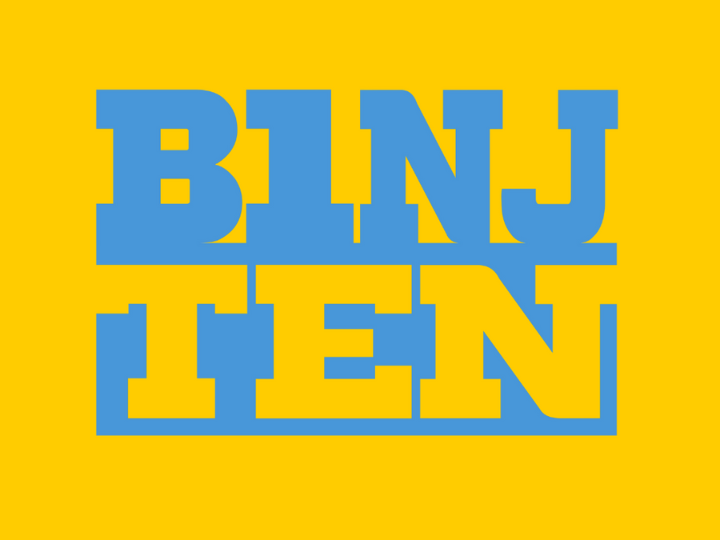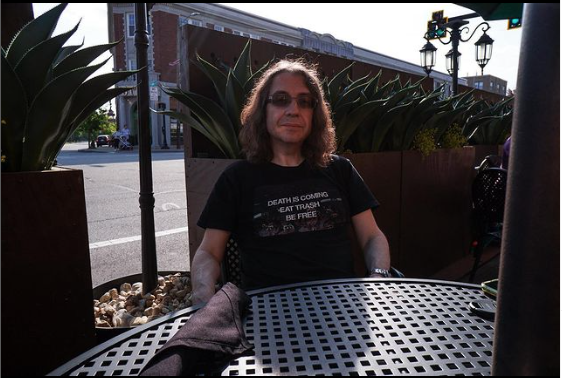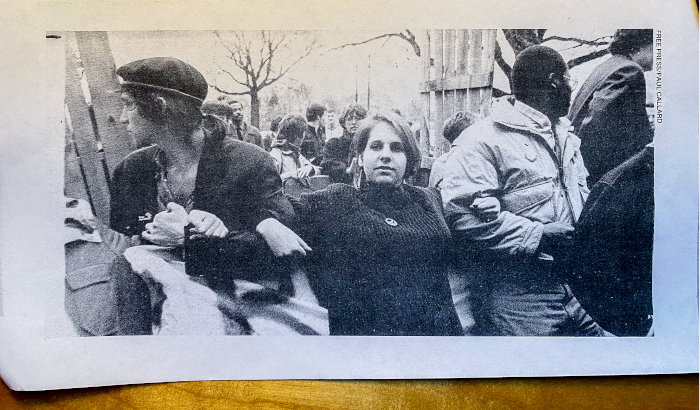The Boston Institute for Nonprofit Journalism’s first decade has been an incredible roller-coaster ride, but Chris Faraone, John Loftus, Linda Pinkow, and I look forward to the challenges to come
It’s truly wild that the Boston Institute for Nonprofit Journalism just turned 10 years old. Although ace journalist Chris Faraone conceptualized BINJ and started working on getting it off the ground a few months prior, pulling media business maven John Loftus into his orbit not long after, we usually date the founding of our organization to June 30, 2015. Which is the very day that Chris and John recruited me into the fold … mere hours after Lesley University refused to renew my contract as a communications and business management professor. An act I have always viewed as retaliation for my having helped organize the successful union drive of the core faculty there.
We started BINJ as an investigative journalism incubator. A niche that Chris had correctly identified as one that really needed filling in Massachusetts. And we immediately set to work producing longform enterprise reporting in the public interest—syndicating it for free to all independent community news outlets with budgets of under $2 million per year, as we continue to do.
Chris, John, and I had literally no money upon launch. My partners both continued to work for DigBoston newspaper for the first year plus. And since I had unemployment checks for what turned out to be only five months, it was agreed that I would get a small monthly stipend after we started fundraising, making me BINJ’s first paid staffer.
We started hitting up everyone we could think of for money right away, getting our first significant grants within a few months from Craigslist founder Craig Newmark (before he established his foundation) and the Reva and David Logan Foundation—both Chris’ connections. The Logan family and their board would continue funding us throughout most of the decade to come and it is fair to say that BINJ would never have survived to become the (relatively) mature nonprofit we are today without their help. For which we are eternally grateful.
The next several years were an incredible whirlwind of activity. Together with over one hundred experienced freelance journalists, a much smaller number of part-time editorial staffers, and close to two hundred interns, BINJ has produced thousands of high-quality news articles and syndicated them to dozens of news outlets around Massachusetts, the nation, and even internationally from time to time—putting hundreds of thousands of dollars into the pockets of a legion of always-struggling reporters as we went.
We have created and run several major projects over the years. Some, like our Manchester Divided newsroom covering the 2016 and 2020 New Hampshire presidential primaries in BINJ’s most independent of independent styles and our Somerville News Garden that experimented with preventing a small city from becoming a “news desert,” have spun off or sunsetted. Others, like the student-driven statewide magazine HorizonMass that has become our main news brand, are still going strong.
We have run innumerable journalism workshops and trainings, several journalism conferences, and helped educate our reporting interns in three 12-19-student cohorts annually (spring, summer, and fall).
We have partnered with every kind of news organization under the sun from a consortium of public access TV stations to some of the largest investigative reporting outfits in the world.
We have also created regional and national networks of fellow news outlets that function as grassroots trade associations serving the sector most jeopardized by the several negative trends that are wiping out the news industry—our sector of small independent news organizations “on the ground,” as we say. The Alliance of Nonprofit News Outlets being the best known of them.
Along the way, we recruited our brilliant Development Director Linda Pinkow, who has done a fantastic job of professionalizing our fundraising operation and keeping us going in the extremely difficult market we work in.
Most importantly, we have continued to serve communities around the Bay State and beyond with critical news articles on key issues of the day that they can’t find anywhere else—across several beats that we have made our own: including prisons, government transparency, housing, and opiates.
As so-called AI threatens to wipe out American journalism completely, finishing the downward spiral started by greedy multinational media corporations forty years ago and accelerated by the rise of the Internet, we continue to hold up the banner of the free press against all odds.
Something that has only been possible because of tremendous financial support over the many years, not just from major funders, but from thousands of our readers that have continued to donate to keep BINJ surviving and thriving.
But this column is not a funding pitch, it’s just a brief review of how BINJ started, where we have been, and who is responsible for us still being here. And that’s everyone who has ever worked with us, everyone who has ever donated to us, and everyone who takes time out of their busy lives to read the huge amount of news coverage that we have produced.
As to where we, and our entire trade, are going next, my BINJ colleagues and I are always trying to figure that out. Things look pretty dire to us these days. But what else is new? They’ve been dire for the entire decade of our existence to date, yet we’re still here.
So, for now, I’ll just say that we look forward to the challenges to come and to providing news that you all can use for as long as we possibly can. Onward.
Apparent Horizon—an award-winning political column—is syndicated by the MassWire news service of the Boston Institute for Nonprofit Journalism.






